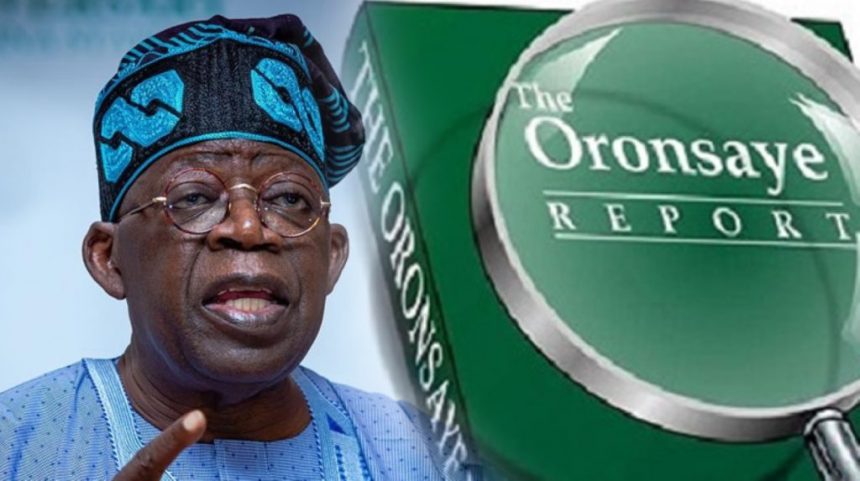Joe Abah, a former Director-General of the Bureau of Public Service Reforms (BPSR), has provided ten robust guidelines for the practical and comprehensive application of the Oronsaye report.
The 2012 report, known as the Stephen Oronsaye report, details the overhaul of the Federal Government’s ministries, departments, and agencies (MDAs).
The report was published during the administration of former President Goodluck Jonathan, and a committee submitted the white paper to President Buhari in 2022.
Meanwhile, on February 26, the Bola Tinubu administration announced it would enact “aspects” of the report to lower the cost of governance.
In a report published by Agora Policy, Abah pointed out the difficulty in establishing a direct evaluation method for the report, noting that many agencies had yet to be formed in 2012 when it was first published.
He, however, offered ten different recommendations to the government on how it can seamlessly and practically enact the policy of the report, thus reducing the cost of government.
Oronsaye Report: Below are the recommendations according to Joe Abah
1. Mergers require time: The government should realise that mergers are complex endeavours that require time, expertise, planning and resources.
2. Mergers Cost Money: Mergers cost money, and a budget is needed for the exercise.
3. Sub-committee for Agencies: In addition to the 10-member committee announced by the government, it would be important to set up merger committees for each agency that is to be merged.
4. Public Awareness: The public needs to be sensitised to what is realistically achievable in the 12 weeks that the 10-member committee has been given.
5. Six months Minimum: It would be prudent to allow a minimum of six months for proper completion.
6. Audit of Assets: All the agencies affected should immediately conduct independent audits of their assets and staff.
7. Review of Agencies: Mandates, management arrangements, and organizational structures should be reviewed to ensure that emerging new organisations are appropriately sized and fit for purpose.
8. Audit of Staff: There is a need to rationalise staffing. This should be done sequentially, starting with redeploying people to other parts of the public service where their skills may be needed. However, it would be better to be upfront with the public and the trade unions that some people would have to go. Efforts should be made to offer enhanced packages for people to go, first on a voluntary basis.
9. Need for Consistency of Principles: The process for subsuming agencies under other agencies, relocating them to new ministries, or abolishing them should use the same principles, including audits of assets, staff audits, and rationalisation of staff.
10. Record Keeping: The Office of the Secretary to the Government of the Federation should improve its record keeping, particularly for important reports like the Joda, Ayida, and Oronsaye reports, and ensure that they are posted online for ease of access.




 Premier League
Premier League